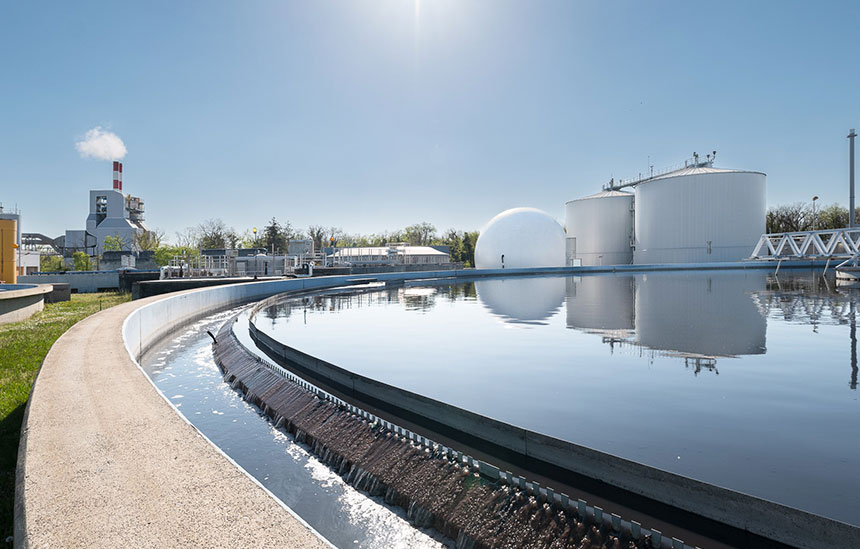Operational since December 2020, the Sausheim methanization unit treats the sewage sludge of an equivalent of 490,000 inhabitants and produces 2,000,000 Nm3 of purified biomethane each year. This green gas will supply 44 buses of the Mulhouse agglomeration by 2022, compared with 22 today. For the moment, the biomethane not consumed by the buses is intended for the buildings of the Mulhouse Alsace Agglomeration. The entire bus fleet will run on biomethane by 2034.
The installation fully meets the agglomeration’s energy transition needs by reinforcing the energy complementarity between the wastewater treatment plant and the energy-from-waste plant. Indeed, the methanization unit recovers in green energy 100% of sewage sludge by using the waste heat produced by the energy-from-waste plant to maintain the two methanization tanks at constant temperature (37°C). The digested sludge recovered from the anaerobic digester is centrifuged and its solid residue is treated within the energy-from-waste plant.
This process complements the ecohub’s existing energy markets, namely electricity production for the self-consumption of the two sites, steam production for the “Papèteries du Rhin” paper mills, and supply of the hot water network for municipality heating.
Phosphorus recovery: a national first
The methanization unit is equipped with a phosphorus recovery system, thanks to a unique process in France developed by SUEZ: “PhosphogreenTM”—which recovers phosphorus in liquid digestates from the methanization of sludge from the wastewater treatment plant, via a precipitation-crystallization reaction. The recovered phosphorus, called struvite, takes the form of 1 to 3 mm granules, and is used for agricultural purposes to fertilize the soil. Each year, nearly 90 metric tons of struvite will be recovered.
The production of this bio-based fertilizer contributes to the preservation of this resource. Indeed, according to the United Nations, the consumption of phosphorus, essentially linked to the food industry and agriculture, is expected to increase 70% by 2050, resulting in a shortage within 100 years. Faced with this observation, the “PhosphogreenTM” technology represents an alternative: 20% of the current European demand for phosphorus could be covered by phosphorus recovery from wastewater.
Francis Hillmeyer, President of Mulhouse region’s SIVOM: “The completion of this project is a major element in the energy transition policy implemented throughout the Greater Mulhouse agglomeration. The entire Sausheim site, which includes the energy-from-waste plant and the wastewater treatment plant, is progressively evolving to become a major actor in the circular economy and renewable energy production, by mixing production of electricity, steam, gas and fertilizer.”
Sausheim methanization unit – key figures:
- A sewage sludge treatment capacity equivalent to 490,000 inhabitants;
- An annual green gas production of 2,000,000 Nm3, equivalent to the consumption of 125 urban transport buses in the Mulhouse agglomeration;
- A 30% reduction in sludge to be incinerated;
- An annual production of 3,500 bags of struvite, representing 88 metric tons of struvite

